If God exists, how can we lay claim to freedom, since He is its beginning and its end?
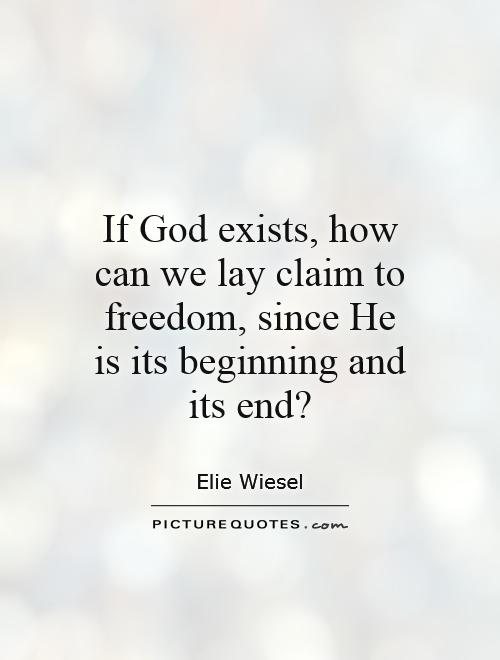
If God exists, how can we lay claim to freedom, since He is its beginning and its end?
Elie Wiesel, a Holocaust survivor and Nobel laureate, grappled with questions of faith, freedom, and the existence of God throughout his life. In his writings and speeches, Wiesel often explored the complexities of human suffering and the role of God in the face of such immense pain and injustice. The question of how we can lay claim to freedom if God exists as its beginning and end is a profound and challenging one, particularly in the context of Wiesel's experiences and beliefs.For Wiesel, the Holocaust was a central event that shaped his understanding of the world and his relationship with God. In his memoir, "Night," Wiesel describes the horrors he witnessed and endured in the concentration camps, and the profound loss of faith that he experienced as a result. Wiesel's struggle with the existence of God in the face of such evil and suffering is a theme that runs throughout his work, and raises important questions about the nature of freedom and the role of divine providence.
If God exists as the beginning and end of freedom, then how can we reconcile the existence of evil and suffering in the world? Wiesel's own experiences suggest that the presence of God does not guarantee freedom from pain or injustice. In fact, Wiesel's own loss of faith in the camps was a direct result of the atrocities he witnessed, and his inability to reconcile the existence of a loving and just God with the horrors of the Holocaust.
However, Wiesel also believed in the power of human agency and the importance of bearing witness to suffering and injustice. In his acceptance speech for the Nobel Peace Prize, Wiesel spoke of the need to speak out against oppression and to stand up for those who are marginalized and persecuted. In this sense, Wiesel believed that true freedom comes from taking a stand against injustice and using our voices to speak out against evil, even in the face of overwhelming odds.
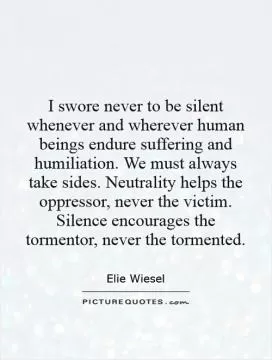
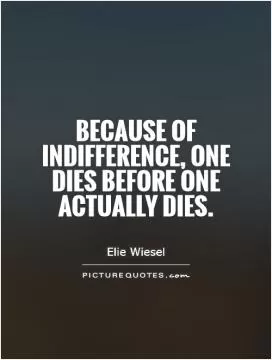

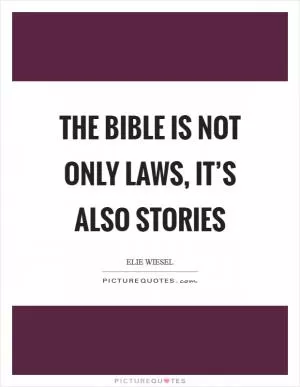
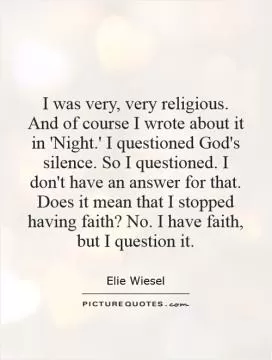
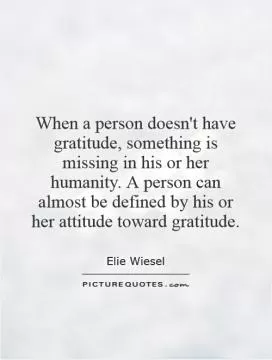
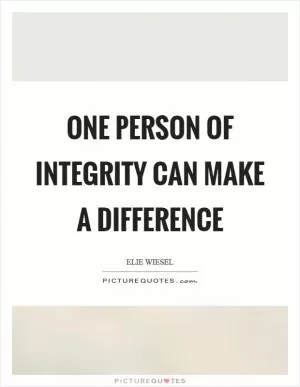
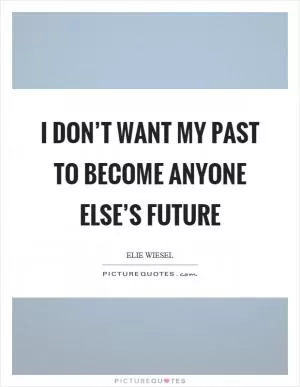
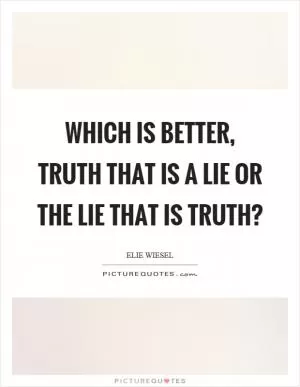
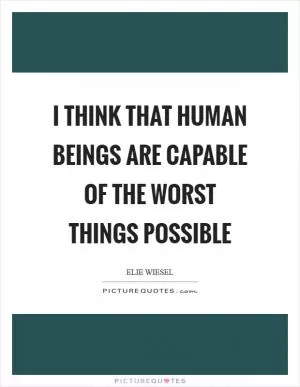
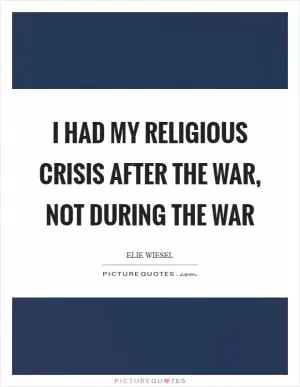
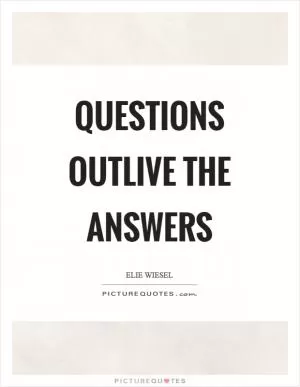
 Friendship Quotes
Friendship Quotes Love Quotes
Love Quotes Life Quotes
Life Quotes Funny Quotes
Funny Quotes Motivational Quotes
Motivational Quotes Inspirational Quotes
Inspirational Quotes